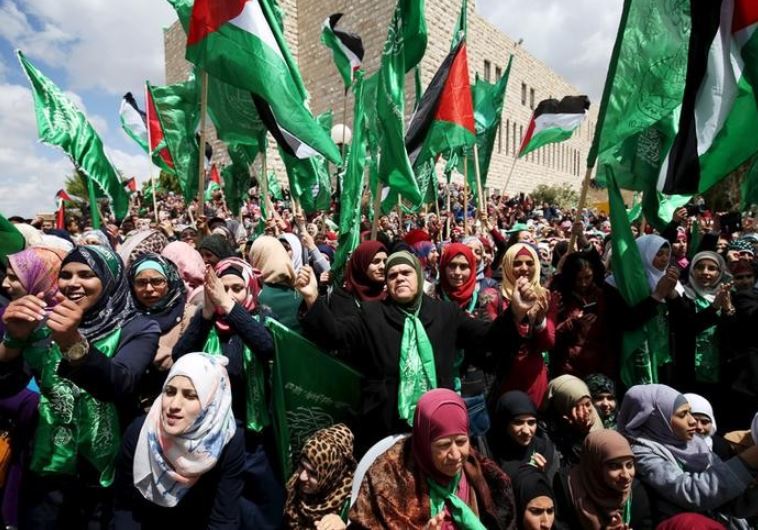
Gershon Baskin, founder and former Co-director of IPCRI, looks back on 20 years of cooperation in the Israeli-Palestinian dialogue
Whether Israelis like it or not, whether they agree or not, the Palestinian people have legitimate claims for self-determination on part of the land where they have been living for generations. Just as Israeli Jews relate to the Land of Israel as their homeland, the Palestinians relate to the Land of Palestine as their homeland. That is not going to change. In fact, the more the Palestinians are oppressed and abused by Israeli control, land grabs, settlement building, imprisonment, military and settler violence, checkpoints, control on movement, and the strangling of their economy, the more resolved they become in their demand for national recognition and legitimacy. The Palestinian strategy to achieve independence over the past 76 plus years has been to pressure Israel, either through violence or through the international community and international courts. This strategy has not led to their liberation, independence, dignity nor security. The Palestinian strategy has led to a hardening of positions in Israel against the Palestinians and a strengthening of the right-wing and the general public in Israel against a Palestinian state. This has been a failed strategy. Even as the Palestinians claim that international law gives them the right to resist occupation by all means, being “right” as they say, is not always the same thing as being smart. The Palestinian strategy has failed and they are trapped in their failure. Israel has had no peace strategy since the time that Ehud Olmert was Prime Minister and Israel is trapped in its failed “no-strategy” vis-à-vis the most existential issue facing it – the Palestinian issue.
Even if the Palestinians are successful in getting 191 member states of the United Nations to recognize the State of Palestine (leaving only the USA and Israel out), the Israeli occupation over the territories that the Palestinians claim as their state will not change. Essentially, the Palestinians really only need the recognition of the State of Israel in order to achieve their freedom, liberation, security and dignity. It should be in the national interests of the State of Israel to see the creation of the State of Palestine in the lands occupied by Israel in 1967 (with agreed territorial swaps to deal with realities created since 1967). This is not only the best solution for Israel in terms of real security and Israel’s international relations, it is also the most Zionist solution there is. Israel describes itself as the democratic nation-state of the Jewish people, but in reality, between the River and the Sea, Israel is neither democratic nor Jewish. With 50% of the population under its control being Palestinian, Israel does not have a clear Jewish majority nor does democracy exist for all those living on this small piece of land. Even within the city of Jerusalem, the eternal, undivided capital of the State of Israel and the Jewish people, 40% of the residents of Jerusalem are Palestinians who are not citizens of Israel, not Jewish and do not enjoy full equal rights.
The research that we conducted in 2007 showed that up to 70% of Israelis were ready to make significant concessions to enable the establishment of a Palestinian state next to Israel (in the territories occupied by Israel in 1967) if they believed that the Palestinians were truly partners for genuine peace. I believe that if the same research was conducted today, we would find similar results. We asked the Israelis then what would convince them that the Palestinians were truly willing to live in peace with Israel, the answers were the same across all population groups: if the Palestinians taught peace in the classrooms, and if Imams in the Mosques in Palestine preached peace and did not incite against Jews and Israel. Education is the truest reflection of the values of any society and religion in this land has a key role to play in our identities and in our understanding of our connection to this land and our connection with “the others” living in the land. Palestinians and Israelis do not teach even about the possibility of one day living in peace. We don’t learn each other’s language and we don’t learn anything positive about the other people living in this land. From an objective look at both Israeli and Palestinian educational systems, we – both Israelis and Palestinians do not value peace between the two peoples.
We Israelis who understand the urgency of returning to the genuine possibility of Israeli-Palestinian peace have the responsibility and the obligation to speak directly to our Palestinian neighbors with clear messages about our desire to see Palestine liberated from Israeli occupation, but for that to happen, we must be convinced that they are truly willing to live in peace with us. We need to tell our Palestinian neighbors that we too want to live in peace but we don’t believe that the Palestinians are prepared to live in peace. From my personal experience over decades, and especially during the worst times, such as during the second intifada and from October 7 onwards, what I hear from Israelis is similar to what I hear from Palestinians. Both sides claim that they want to live in peace but that they don’t have partners for peace on the other side. The daily reality of both peoples provides both sides with concrete evidence of the lack of partners for peace in both communities.
If we (on both sides) had real leaders, they would know that the most important thing they could do is to decide that they must have a real partner on the other side and they would work day and night to create and build that partnership. Partnership is first and foremost a decision. Once decided, even then it is hard work to develop the partnership and to sustain it. Much of international relations, at the end of the day, is about human relations. It’s about relationships. It’s about building partnerships of shared visions. It’s about working together with respect. It’s about knowing how to listen, how to express empathy that does threaten but compels to demonstrate one’s own humanity. From partnership comes to commitment to work together, in national interests of each side, to create the kind of future that will benefit their own side but also the other side as well. It is only through this kind of relationship that it will be possible to overcome the pains of traumas of yesteryears. Both sides are suffering from the pains of war. Both sides have no promise of a good future unless the other side has the same promise. Both sides must understand that mutual recriminations and arguments over narratives, over who is right and who is wrong will get us nowhere. Eventually, some day in the future we will have the ability and the desire to engage in truth and reconciliation. For now, it is enough to develop the partnership of a joint vision for a peace future. For that to happen, we need new leaders in Israel and in Palestine.
I would like to conclude by quoting the wise words of the Palestinian scholar Rashid Khalidi (taken from several articles that he authored):
Christian and Muslim Palestinians believe in the Jewish people’s connection to this land. Does that give them a real estate deed?… You need to ask yourself: Is there an Israeli people, and do they have rights? … Today there is an Israeli people. The terrible injustices that were inherent in the dispossession of the Palestinians and the denial of their national existence have to be remedied. There’s no way around it…. There has to be a fundamental reorganization of the Palestinian national movement. And there has to be a unified consensus among Palestinians. This is a Palestinian problem. Israel, on the other hand, has to overcome its obsession with force when dealing with the Palestinians. It has to overcome the idea that there’s only one people with a right to self-determination in Israel… Hamas rose because the PLO [Palestine Liberation Organization] moved away from armed struggle when it formally renounced violence, recognized Israel, and accepted to negotiate with it on the basis of the United Nations Security Council Resolution 242 beginning in the late 1980s. Hamas took up, in other words, the torch of armed struggle. If the PLO had achieved what it was trying to achieve, which was a Palestinian state on a tiny fraction of about 20 percent of Palestine, Hamas would not be with us today. Hamas opposed this process, and it was successful in doing so, partly because under no circumstances could a fully independent, sovereign Palestinian state be realized under the Oslo process. This process led to a strengthening of Israeli occupation and colonization, an immiseration of the Palestinian people, a chopping of the West Bank into tiny little Bantustans. That’s what turned Hamas into a popular movement… Continued occupation and continued colonization will inevitably produce continued resistance. Whether it’s armed and violent, whether it produces these kinds of atrocities that we’ve seen on October 7 or not, occupation and colonization will inevitably produce resistance. If this conflict is to be resolved, it will have to be resolved between whoever is in power on each side. I don’t get to say that I will not sit down with this Israeli government because this general or that minister have blood on their hands.
This is the elected government of the state of Israel. Whoever the Palestinians end up deciding is their representative, hopefully democratically, are the ones that Israel and the world are going to have to deal with.


